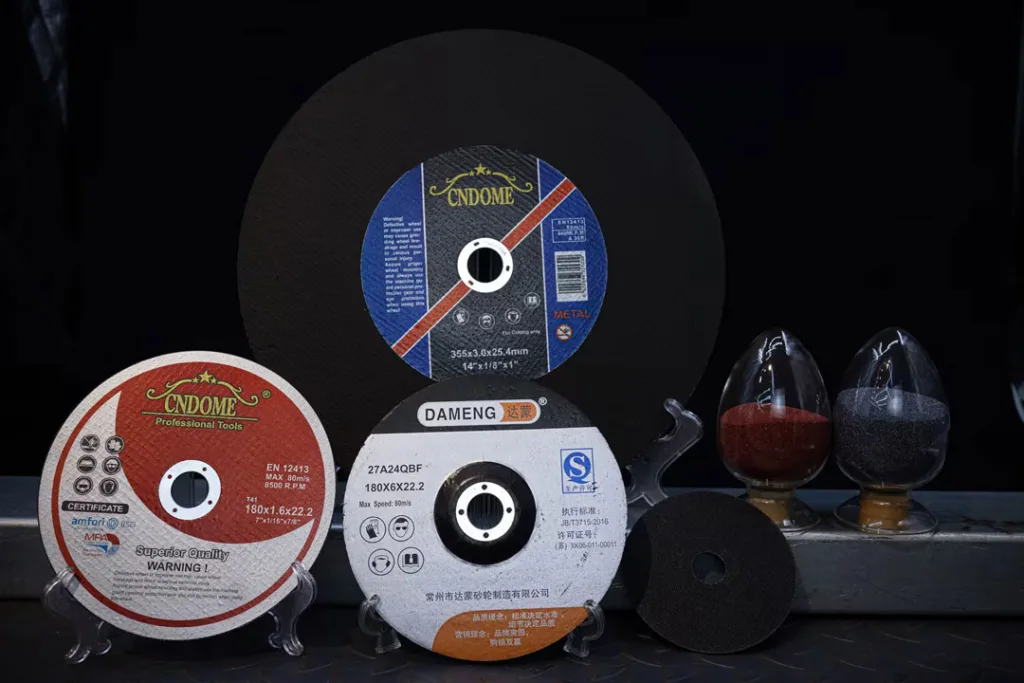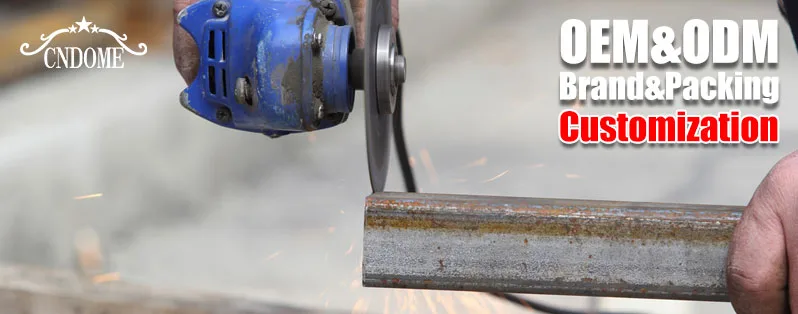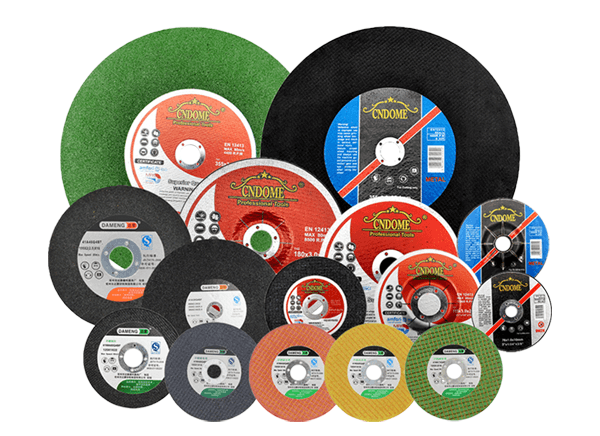Abrasive wheels are indispensable tools across various industries, enabling tasks ranging from grinding and cutting to polishing and sharpening. These wheels, often made of abrasive particles bonded together, have a significant impact on manufacturing, construction, and even DIY projects. In this article, we’ll explore the world of abrasive wheels, shedding light on their types, applications, and crucial safety measures.
Types of Abrasive Wheels:
Abrasive wheels come in various forms, each designed for specific applications. Here are some common types:
Grinding Wheels: These wheels feature abrasive grains to cut, grind, and sharpen materials like metal, stone, or concrete. They are essential in metalworking and construction.
Cut-off Wheels: Ideal for cutting through metals, these wheels offer precision and efficiency in metal fabrication and welding.
Flap Wheels: Characterized by flaps of abrasive material, these wheels excel in blending, deburring, and finishing tasks, making them suitable for woodworking and metalworking.
Diamond Wheels: Infused with diamond particles, these wheels are exceptionally hard and find use in cutting, grinding, and shaping hard materials like glass, ceramics, and carbide.

Applications of Abrasive Wheels:
Metal Fabrication: In metalworking, abrasive wheels are essential for shaping, smoothing, and polishing metal surfaces, creating precision components.
Construction: Construction professionals rely on abrasive wheels for cutting through concrete, bricks, and tiles, making them indispensable for tasks like tile installation and masonry work.
Automotive Repair: Mechanics use abrasive wheels for rust removal, surface preparation, and repairing body panels.
Woodworking: In woodworking, abrasive wheels help shape, sand, and finish wooden surfaces, providing fine detailing in crafting.
DIY Projects: Enthusiasts and hobbyists employ abrasive wheels for a wide range of DIY projects, from sharpening garden tools to crafting custom furniture.
Abrasive Wheels Safety:
Safety should always be a top priority when working with abrasive wheels. Here are some essential safety precautions:
Protective Gear: Always wear appropriate personal protective equipment, including safety goggles, gloves, and a dust mask to shield yourself from debris and dust.
Inspect Wheels: Before use, examine abrasive wheels for any cracks or damage. Discard damaged wheels immediately to prevent accidents.
Secure Workpiece: Ensure the workpiece is securely clamped or held in place to prevent it from moving while using the abrasive wheel.
Guarding: Make sure that the tool you’re using has the necessary guards in place to shield you from sparks and debris.
Follow Instructions: Read and adhere to the manufacturer’s instructions for the abrasive wheel and the tool being used.
Proper Storage: Store abrasive wheels in a dry and cool environment to prevent moisture damage.
In conclusion, abrasive wheels are versatile tools that play a vital role in many industries and DIY projects. Understanding the types, applications, and safety precautions associated with abrasive wheels is crucial for ensuring both productivity and safety in various tasks. Always remember to prioritize safety when working with these essential tools to prevent accidents and injuries.
Online Message
Minimum Order Quantity: 5,000 Pcs, 10 Pcs Free Samples.
Contact Us For More Information!
Tel/WhatsApp
+86 18796960868
[email protected]
Address


